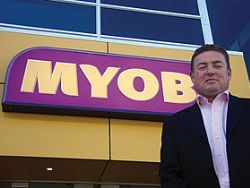Bad Bosses
They exist even in these politically correct times – employers competent at running a business, but seriously handicapped by poor people skills. Ruth Le Pla explores the dark side of business leadership, and meets some bosses that are doing it right.
Did you hear about the manager who wouldn’t let his employee attend his mother’s funeral? Or the manager who assigned a heavily pregnant worker to a distant car park so he’d be closer to the office? Or how about the boss who regularly bellowed at staff in front of customers? These are extreme examples but, at some time or another, most people have worked for bosses who are sadly lacking in workplace graces. Perhaps it’s seemingly small happenings: trivial fault-finding, unrealistic goals, micro-managing. This is the stuff that wears down even the best employees and launches them off in search of another job. But what if you are someone else’s boss from hell? Would you know it? Do you care? Most importantly, what effect does it have on your employees and your business’s bottom line? Bad bosses wreak a terrible toll on the emotions and productivity of workers. The effects ripple out into families and the wider social and business community. Bullying is just one tiny part of the problem, yet in her book Workplace Bullying Andrea Needham says conservative estimates back in 2001 put the cost of bullying in Australia at between $A6 billion to $A13 billion per annum. Others estimate the figure may be as high as $A30 billion. Needham’s book chronicles just one part of the sad tale of poor management. Bad bosses come in much more subtle guises. It’s a mistake, for example, to equate ‘nice’ with ‘good’. Dr Iain McCormick, managing director and executive coach at the Executive Coaching Centre, defines bosses along two axes: business competence and people skills. A good boss, he says, is someone who scores highly on both counts. A bad boss is anything else. “An awful lot of bosses fall into the competent but low in people skills category,” he says. “Basically, they are so keen to get on with the business and make sales that they become insensitive to other people. They tend to become angry and ride roughshod over other people and don’t develop the kind of trust that is necessary to effective relationships.” On the other hand, it is possible for a boss to be great with people but only moderately competent at the job. “There,” says McCormick, “we’ve got a small business that is probably just ticking over; it isn’t growing the way it wants to. Typically those bosses have a very strong need to be liked and that overrides their managerial role.” Bad boss stats When Florida State University asked workers in the business world about their bosses, 40 percent of respondents said they work for ‘bad bosses’. What did they mean by that? 39 percent said their managers failed to keep promises. 37 percent reckoned their bosses did not give them the credit they deserved. 31 percent indicated their supervisor gave them “the silent treatment”. 27 percent reported negative comments from their management. 24 percent claimed their bosses invaded their privacy. 23 percent stated that their supervisor blamed them or other workers to cover up personal mistakes. Giles Burch talks of a spectrum ranging from authentic leader to psychopath. He is a senior lecturer in human resource management at Auckland University’s Business School and a registered psychologist specialising in personality psychology. Burch’s work on the ‘dark side’ of human behaviour in a work context encompasses psychopathic personality types who are capable of lying to and abusing others with no consequent feelings of remorse or guilt. Then there are the narcissists who may not go to that extreme but whose ego-centricity allows them to believe they are entitled to more than what they have. Or the Machiavellian personalities who play a mean political game. Many people, he says, think of these traits as bad but they are, in small doses, not only useful but critical for business success. “We actually need some narcissism, for example,” says Burch. “If you don’t have any at all you’ll have no self-respect or feelings of self-worth. “It’s a curvilinear relationship: if you have none of these traits you won’t perform well: if you have too many you won’t perform well. So there’s ground in the middle.” Burch stresses the importance of recognising that your personality as boss can have an impact on the bottom line. Warning signs that all is not well, he says, can include high staff turnover, absenteeism and, paradoxically, presenteeism – because staff may be afraid of the consequences of being away. Other tell-tale signs include high levels of sick leave and general depression in the workplace. Measuring employer performance John Robertson, director of workplaces survey consultancy JRA, has been tracking what makes com-panies tick from an employee’s perspective for the past eight years. He has spearheaded the unlimited/JRA Best Places to Work survey since he launched it back in 2000. The survey is New Zealand’s largest annual workplace climate-employee engagement survey and our country’s most definitive measure of ‘employer of choice’ and ‘best employer’ claims. Robertson says the survey reveals that there are some common features of great workplaces both large and small. “And one of the key attributes is the quality of the leadership.” When it comes to smaller workplaces – which the survey defines as having 20 to 49 employees – Robertson’s research pinpoints six key drivers of employee engagement. Job giving a sense of personal achievement. Work making full use of your knowledge and skills. Being a fun place to work. Communication being open and honest. Being able to rely on the support of others. Career and personal development opportunities being available. Other characteristics include feeling a sense of belonging, a sense of common purpose in the organisation, that there’s a future for you in the organisation and that your contribution is valued. Robertson suggests SME bosses ponder how their employees might rank their current organisation against these six characteristics “because that will predict how engaged they are in your workplace”. According to the latest unlimited/JRA Best Places to Work survey a whole raft of local SME bosses are getting it right. Government agency the Securities Commission and outdoor adventure-based learning school the Outward Bound Trust are named again. So too are management and IT consultancy AMR Consulting and software development and IT consulting company Equinox. Newcomers to the list include function and event management company Creative Functions (see the box story “Getting it right” for more details on how boss Mike Simpkins is hitting the right spot with his employees). Other first timers include debt collection agency Collection House and food manufacturer RJ’s Licorice. All of which goes to prove that good bosses are alive and kicking in a wide variety of local SMEs. Becoming a better boss What do you do if you think you’ve got room for improvement as a boss? According to Needham, anyone thinking along those lines is already part-way to sorting themselves out. The first step, she says, is to become self-aware. Honestly face up to what you are good at and where you fall short. “Psychometric testing can show red flags.” Next, work on plugging your weaknesses. And don’t be afraid to invest in yourself through coaching or mentoring. “Not from a friend. Go and find someone who knows what they’re talking about.” Needham urges SME bosses to view dollars spent on themselves as an investment in the business. “We keep saying that business has changed. But the requirements of managers and bosses have changed too. I don’t think people have got it into their heads yet that they also have to change along with the systems, financial requirements and legislation. They seem to think they can just behave like they used to. They can’t.” Giles Burch says business people frequently fail to recognise the importance of personality in the business mix. “I do a lot of gigs, especially in leadership development. I put up my slides and say ‘here’s personality’ and at the end people say ‘wow, I hadn’t appreciated that’. “So start talking about personality. We need to be frank about it. The problem is you have all the emotional intelligence stuff out there and the Myers Briggs stuff which is fine, but everything’s couched in nice terms. The profiles I use have a neuroticism scale and if somebody’s neurotic (i.e. anxious or depressed) they’re probably not going to be effective,” says Burch. “Personality doesn’t explain everything in terms of people’s performance but it does explain a lot. Once you’ve done that, people can look at themselves and then maybe go and get profiled or work with a coach.” Costs for assessment and coaching vary hugely: anything from around $150/hour up to $400/hour. The industry is largely unregulated so it is worthwhile checking out exactly what you are getting before you front up with the dollars. The number of sessions is driven by the client but many people opt for around six to 10. Don’t expect miracles overnight though. Even when you have rethought your viewpoint and started to make changes, you will still need to allow time for your employees to adjust to the new you. “If you’ve always been a power and control boss your employees aren’t going to react overnight,” says Needham. “It will take a while. Employees have long memories and you will have to re-earn their trust.” Expect to have to consistently demonstrate your new thinking. And bear in mind Burch’s point that not all personality traits are painted in black and white. In some business sectors, a few ‘dark side’ personality traits are vital for survival. Burch says he has worked with a lot of SME leaders in London’s cut-throat financial services sector. “Some of the leaders are very narcissistic… quite psychopathic… all multi-millionaires.” Investment bankers and venture capitalists need to be tough minded: that’s the business they’re in. Above all, be smart about it. “IQ is important and you should never underestimate it,” adds Burch. “One of the standing jokes that I like to tell business groups is: if you’ve got a dark side personality and a low IQ you’re probably going to be in hospital with a personality disorder. If you’ve got a dark side personality and a high IQ you might become the CEO of a bank.” Ruth Le Pla is an Auckland-based freelance writer. Email [email protected] Relevant websites: www.employeesurveys.com www.gilesburch.co.nz www.psychology4you.com www.workingamerica.org/badboss



